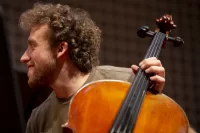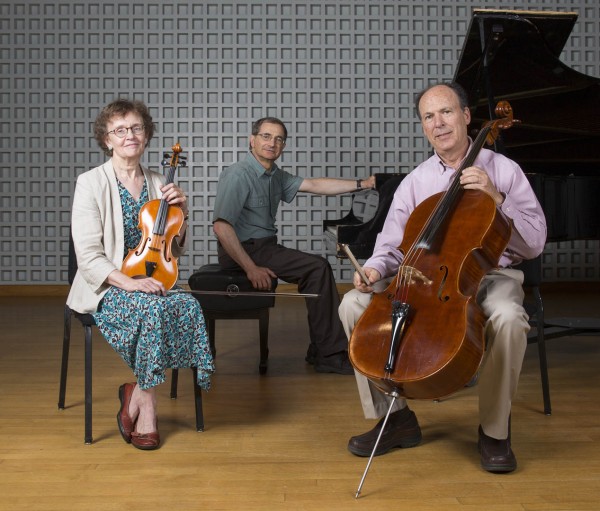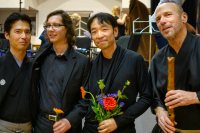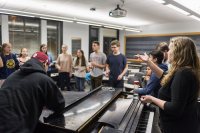
Bates, Bowdoin, Colby musicians to perform French chamber music
Trio les Amis, a piano trio drawn from Maine’s three selective liberal arts colleges, offers chamber music by Debussy, Poulenc and Fauré at Bates College at 3 p.m. Sunday, Oct. 6, in the Olin Arts Center Concert Hall, 75 Russell St.
Admission is free, but tickets are required — please visit triolesamis.eventbrite.com. For more information, please 207-786-6163.
Violinist Mary Hunter (Bowdoin College), pianist James Parakilas (Bates) and cellist Steve Witkin (Colby) present chamber works written by three French masters at distinctly different stages of life: Claude Debussy’s Piano Trio in G major, Francis Poulenc’s Sonata for Violin and Piano and the Piano Trio Op. 120 by Gabriel Fauré.
Debussy wrote his trio at age 17, but never published it. It was finally published in 1986, more than a century after it was written. “The work is full of enchantment, eloquence and drama,” says Parakilas, “even if it barely suggests the originality of concept and style that he would attain not long after.”
Poulenc began his sonata in 1942, at age 43, and premiered it the following year with violinist Ginette Neveu. His dedication of the work to the memory of his friend, the Spanish poet and dramatist Federico García Lorca, “can be understood as one of Poulenc’s quiet protests against the Nazi occupation that France was enduring at the time,” says Parakilas, “since García Lorca was murdered by Spanish Fascist forces in 1936.”
Finally, Fauré wrote his piano trio, his next-to-final composition, at age 78 — yet despite the composer’s advanced age, says Parakilas, “it is a work of unrelenting intensity.”
Parakilas is the James L. Moody, Jr. Family Professor of Performing Arts of Bates. A music scholar as well as performing musician, he is the editor of the highly regarded musical-social history Piano Roles: 300 Years of Life with the Piano (Yale University Press, 2000) and the author of the 2012 textbook The Story of Opera (W.W. Norton).
Hunter is a musicologist with interests in 18th-century opera, gender and music, music in film, and the history of performance. She is the author of The Culture of Opera Buffa in Mozart’s Vienna (Princeton, 1999), which won the American Musicological Society’s Kinkeldey Prize.
Witkin has been the principal cellist with the Colby Symphony Orchestra since 1987. The son of composer Beatrice Witkin, he grew up in New York, where he attended the High School of Music and Art. He has appeared as soloist with the Colby orchestra and performed in concerts throughout Maine. When not playing the cello, he is an ophthalmologist with Maine Eye Care Associates in Waterville.





